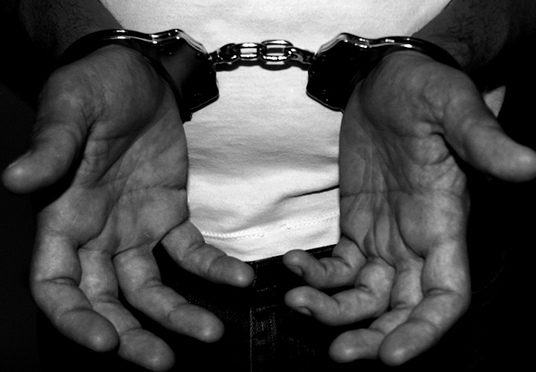Learning that a warrant is open for your arrest is an extremely stressful situation. To verify that you do have an open warrant, contact a criminal defense attorney before turning yourself in. It’s certainly better to voluntarily turn yourself in before an arrest, but take precautions to protect yourself. You should consider the severity of the warrant and the possible consequences associated with your next steps.
If you were previously arrested and you’ve already made a first appearance before the judge, you already know something about the seriousness of the charge:
- You probably know the bond established by the court
- You probably know if this case affects a standing case
After you learn the amount established on your bond, you can:
- Pursue cash bond. In this case, go to the jail to pay the bond amount. Houston area courts accept cash, money orders, checks, Visa, American Express, MasterCard, and Discover.
- Your bond is returned in full after the case is closed.
- Contact a bail bondsman to get you out of jail. A bail bond firm usually charges 10 to 12 percent of the face bond amount. This is the bail bondsman’s non-refundable fee.
- Bring a co-signer if you can’t afford to put up security for the bail bond. This will save time if you have limited assets to pledge to the bail bondsman.
If you haven’t made the first appearance:
- You probably don’t know the charges
- You probably don’t know the bond established by the court
- You probably don’t know if a new case violated current probation in prior case
Contact an experienced criminal defense lawyer beforehand to discover these important details. When you decide to turn yourself in, do so with an understanding of what’s necessary to take care of it.
What happens if you turn yourself in without a criminal defense attorney?
Let’s say you decide to turn yourself in without retaining a criminal defense lawyer. After you’re booked and in jail, it may be difficult to reach a lawyer as quickly as you’d like.
Even if you asked a family member to call a lawyer, he or she might not have instant access to you in jail. How long you stay in jail will depend on the State’s request. The court will advise you of your next court date. You’ll learn whether your current case impacts another open matter:
- For instance, if you’re arrested for a DUI and there’s an outstanding warrant for your arrest, the new case could impact a standing child custody case.
- In this scenario, the court won’t advise you on how to build a defense. You’re literally on your own.
If you turn yourself in on a warrant for a new case, you really should consult a criminal defense lawyer before you do anything:
- The attorney may appear on your behalf, depending on the charge.
- He or she may be able to get the open warrant recalled.
- Alternatively, it might be possible to get you out of jail without posting bail or have your bail amount lowered.
If the open warrant is caused by a probation violation, you need an attorney to consider whether there’s a way to correct the course without getting arrested. You may be able to get an extension or present proof to the probation officer that you were unavoidably detained from keeping an appointment, and so on.
However, if you turn yourself in to the police station, you’ll get booked, sit in custody (possibly for days), and then see the judge.
Yes, you could turn yourself in to the court. The court may also take you into custody but, with a lawyer’s assistance, you might get released.
For all these reasons and more, discuss your matter with a knowledgeable criminal defense lawyer before you take another step.
How and when are warrants issued?
A warrant is authorized by a judge to a law enforcement agency officially granting it with the ability to arrest a specific person (person of interest) regarding a crime.
The judge is presented with pertinent evidence to establish probable cause. He or she hears reasons that the suspect should be arrested.
It’s up to the officer or prosecutor to present probable cause and evidence before requesting a warrant. If the prosecutor or police officer says that a felony has been committed in his or her view, a warrant is unnecessary to make an arrest.
What happens after the arrest warrant is granted?
After the judge grants the arrest warrant, local law enforcement professionals legally arrest the individual named on the warrant when they find him or her.
Is a bench warrant the same thing as an arrest warrant?
No. They’re not the same:
- A judge issues a bench warrant because an individual didn’t appear as required in court. The bench warrant permits law enforcement to arrest the individual.
- An arrest warrant is granted by the court because he or she is believed to have committed a crime.
If an arrest warrant is issued, your criminal defense attorney will learn why it’s open. For instance, you might be a suspect in a rape, murder, smuggling, breaking and entering, abduction, or theft case.
According to the City of Houston, Texas official website, there were approximately 300,000 active warrants in 2016. Some defendants have multiple open warrants.
Can non-criminals have an open arrest warrant?
Unfortunately, yes. If a criminal steals your identity, he or she can commit a serious crime in your name. When the crime is discovered, police identify the suspect and issue an arrest warrant.
Consult a defense attorney right away if you have been arrested due to identity theft.
Arrest Warrants and Legal Options
Now you know: the decision to turn yourself in will get you arrested, processed, jailed, and returned to the court in handcuffs and a jumpsuit. You must turn yourself in to the issuer court, preferably with an attorney. Depending on the charge, the attorney will attempt to:
- Negotiate the recall of the arrest warrant
- Negotiate reduction of bail (or no bail)
- Negotiate release
An effective criminal defense attorney will prepare for trial to defend you against the outstanding charges that prompted the warrant for your arrest. If appropriate, the criminal defense attorney will negotiate a plea bargain to keep you from going to jail or prison or to reduce possible jail time and fines if you’re convicted.
Find a Qualified Defense Attorney for Help
The decision to turn yourself in will almost always yield a better outcome than if you’re arrested on the warrant. Unless you have professional legal training, you can’t competently represent yourself against a determined prosecutor who wants to put you in jail.
That’s why you must find aggressive representation as soon as possible. Find a qualified criminal defense attorney. Contact The Law Office of Matthew D. Sharp in Houston to schedule an initial case evaluation now. Mr. Sharp represents clients in the metro Houston area, including Pasadena, Rosenberg, Angleton, Conroe, Missouri City, Channelview, Sugar Lane, Galveston County, Harris County, Jefferson County, and Brazoria County in Texas.






